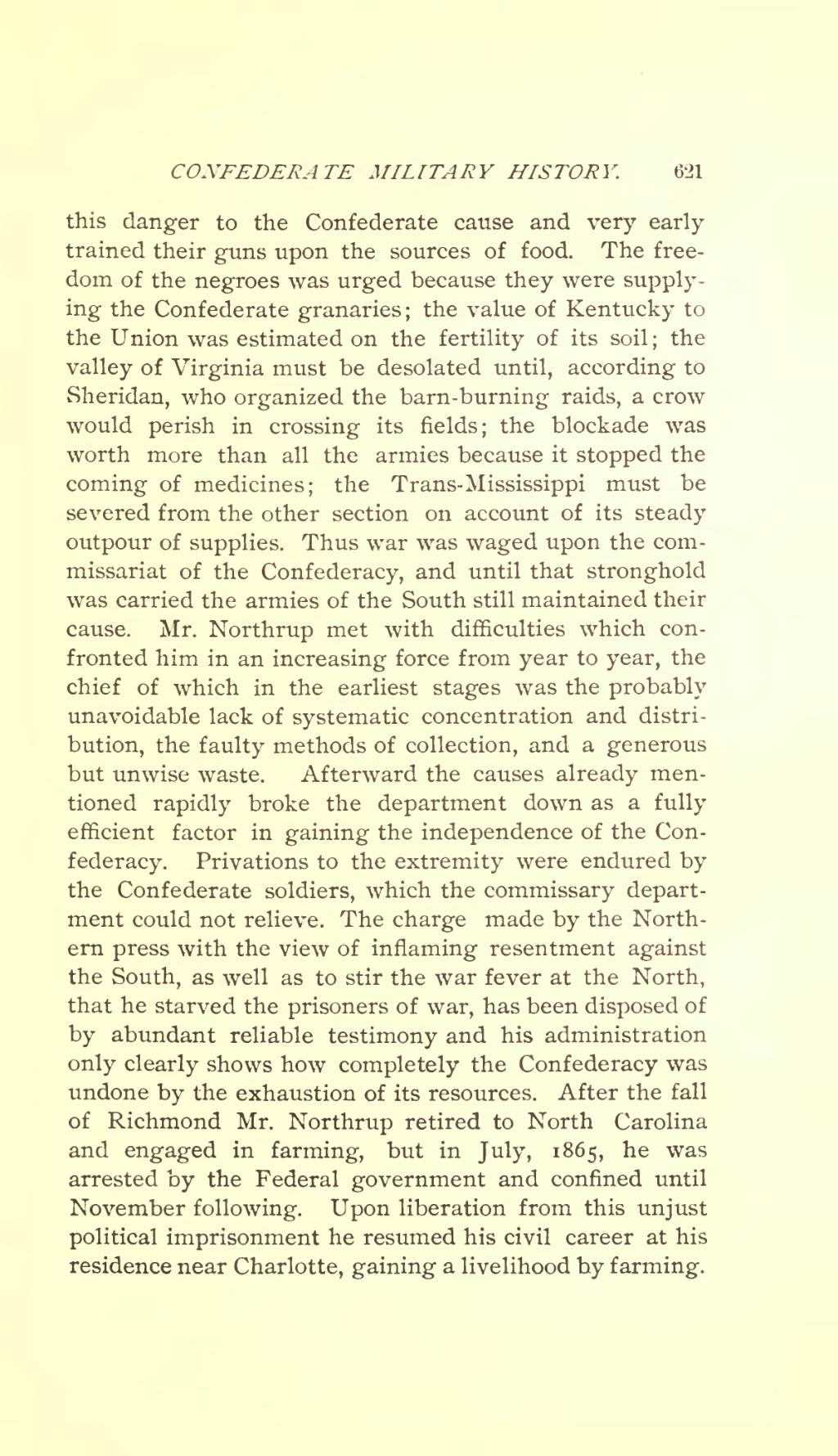this danger to the Confederate cause and very early trained their guns upon the sources of food. The freedom of the negroes was urged because they were supplying the Confederate granaries; the value of Kentucky to the Union was estimated on the fertility of its soil; the valley of Virginia must be desolated until, according to Sheridan, who organized the barn-burning raids, a crow would perish in crossing its fields; the blockade was worth more than all the armies because it stopped the coming of medicines; the Trans-Mississippi must be severed from the other section on account of its steady outpour of supplies. Thus war was waged upon the commissariat of the Confederacy, and until that stronghold was carried the armies of the South still maintained their cause. Mr. Northrup met with difficulties which confronted him in an increasing force from year to year, the chief of which in the earliest stages was the probably unavoidable lack of systematic concentration and distribution, the faulty methods of collection, and a generous but unwise waste. Afterward the causes already mentioned rapidly broke the department down as a fully efficient factor in gaining the independence of the Confederacy. Privations to the extremity were endured by the Confederate soldiers, which the commissary department could not relieve. The charge made by the Northern press with the view of inflaming resentment against the South, as well as to stir the war fever at the North, that he starved the prisoners of war, has been disposed of by abundant reliable testimony and his administration only clearly shows how completely the Confederacy was undone by the exhaustion of its resources. After the fall of Richmond Mr. Northrup retired to North Carolina and engaged in farming, but in July, 1865, he was arrested by the Federal government and confined until November following. Upon liberation from this unjust political imprisonment he resumed his civil career at his residence near Charlotte, gaining a livelihood by farming.
